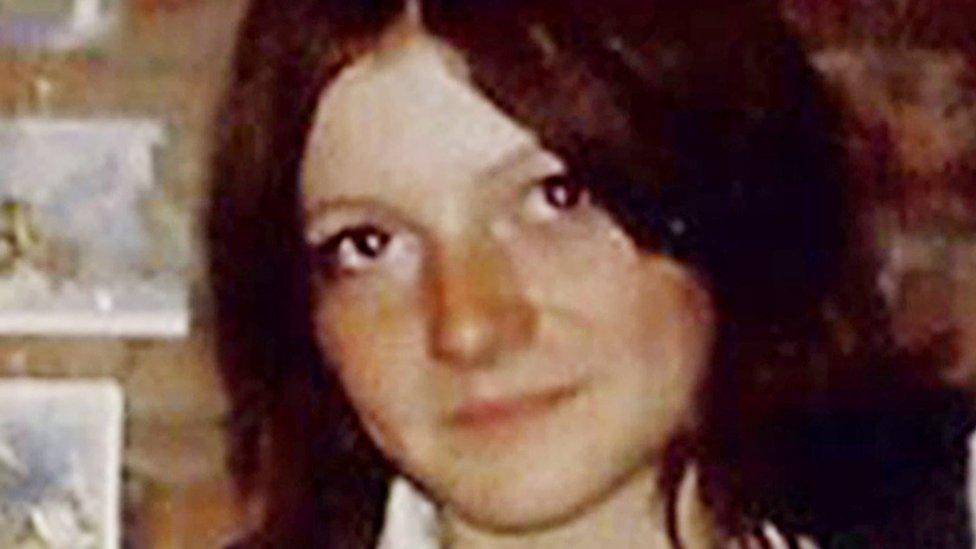Birmingham Pub Bombings evidence submitted to prosecutors
- Published
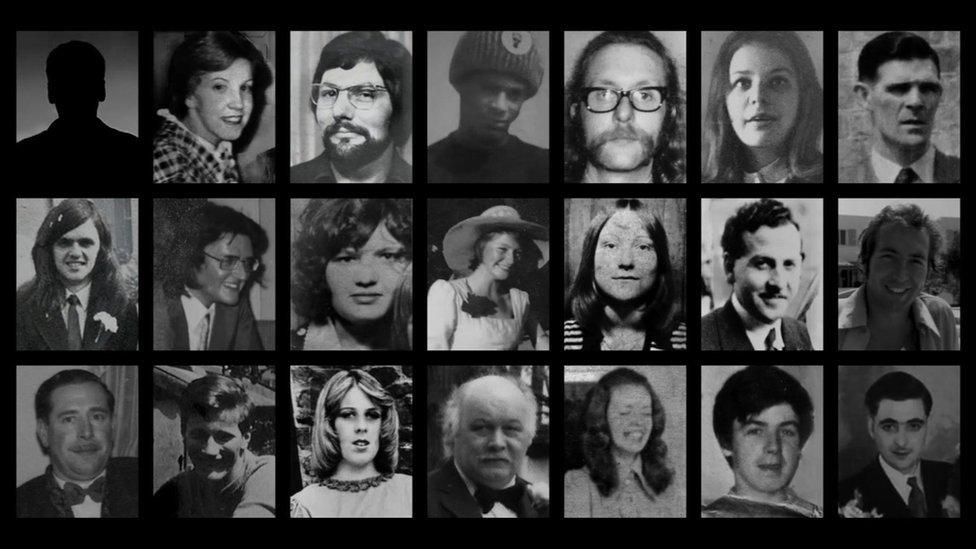
The slain 21
Police have submitted a file of evidence to the Crown Prosecution Service (CPS) about an individual's suspected role in the Birmingham Pub Bombings.
Twenty-one people died and 220 were injured when bombs were detonated in two city centre pubs in 1974.
The CPS confirmed it would be reviewing the file's contents.
West Midlands Police said it remained committed to bringing to justice those responsible for the atrocities.
The force has not identified the individual at the centre of the file.
Monday marks the 48th anniversary of the bombings.
Inquests in 2019 highlighted the role of the IRA, finding an inadequate warning call to authorities about the explosives had caused or contributed to the deaths which were ruled to be unlawful.
Nobody has been prosecuted since murder convictions for six innocent men - the so-called Birmingham Six - were quashed in 1991.
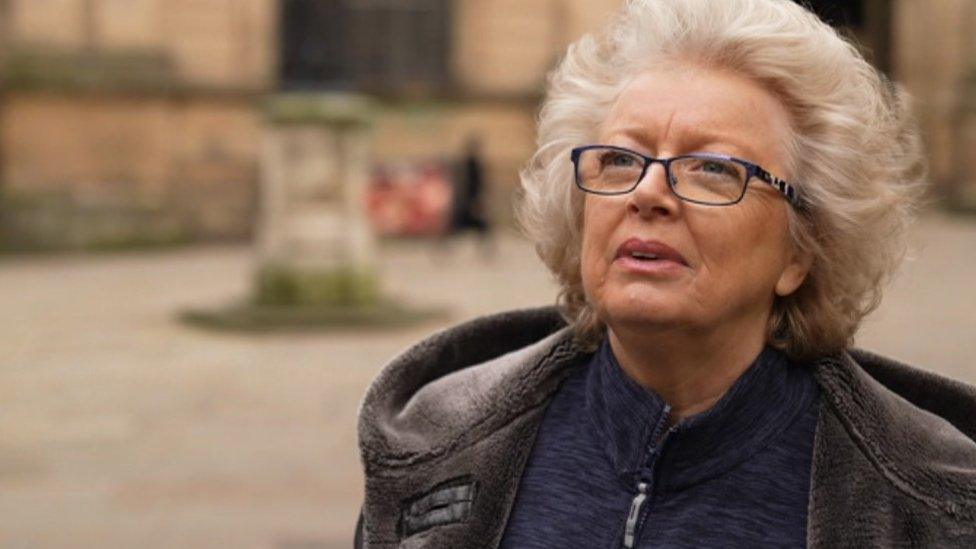
Julie Hambleton is calling for the evidence to be reviewed urgently
Campaigner Julie Hambleton, the sister of Maxine Hambleton who was one of the slain 21, said she hoped the CPS would look at the file "as a matter of urgency".
"It is 48 years after all," she added.
"We hope that our loved ones will finally get a door opened for them to have truth, justice and accountability."
A key member of the Justice4the21 group, Ms Hambleton and her family have brought a civil case for damages in connection with the attacks.
She said she remained "cautiously optimistic at best" about the latest development.
"If it had happened ten years ago I would have been very encouraged," she said, explaining hope had since been tempered "because we've been let down so many times".
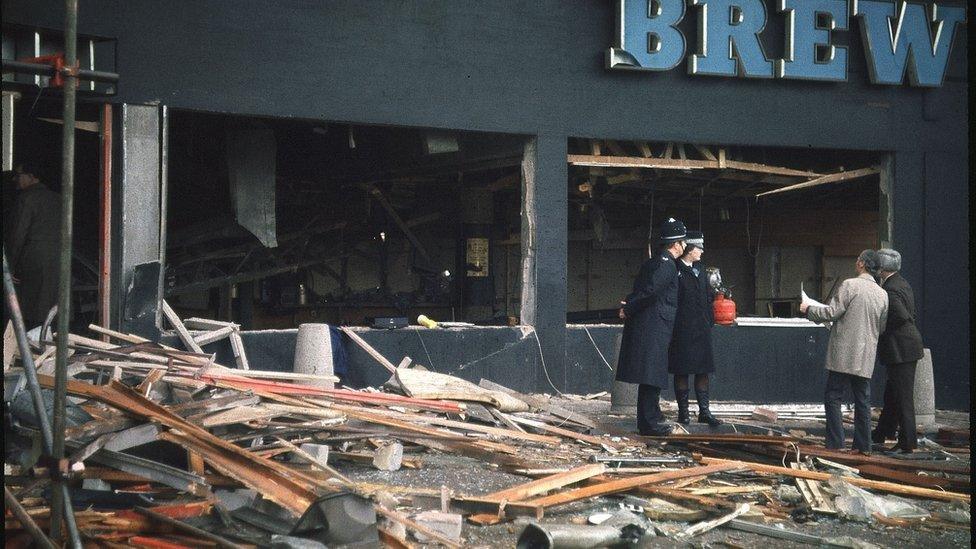
The bombs killed 21 and injured 220 at the two pubs on 21 November 1974
A lawyer representing some of the victims' families echoed Ms Hambleton's calls for a statutory public inquiry into the bombings.
The Home Office previously said an inquiry would be inappropriate while a police investigation remained active.
But Christopher Stanley of KRW Law said it was important those who were responsible faced justice, yet that itself was "only one element of an overall investigation about preventability, knowledge, any collusion, any systemic failures and the whole nature of what was happening as a culmination of an IRA bombing campaign".
The force's assistant chief constable Matt Ward said: "West Midlands Police have submitted a file of evidence to the Crown Prosecution Service resulting from our investigation into the Birmingham pub bombings for them to determine whether an individual should be charged in connection with the events.
"We remain committed to bringing to justice those responsible for the 1974 Birmingham pub bombings atrocity and providing the families with the justice they deserve regarding the events of that terrible day."
The CPS said in a statement: "We have accepted a file from the West Midlands Police in relation to the Birmingham pub bombings in 1974 and will now begin to review the evidence."
"The events in Birmingham were a tragedy, and our thoughts are with the friends and families of the victims."
In March, a court ruled journalist and former MP Chris Mullin may keep secret the identity of a man whom police said was responsible for the deaths.
Mr Mullin's investigative work played a part in the freeing of the Birmingham Six whose convictions were ruled unsafe by the Court of Appeal.
Lawyers for West Midlands Police had argued his notes could solve the case and should be handed over, saying they contained the name of the bomb planter, but the court found Mr Mullin had a "fundamental" right to protect his sources.

Follow BBC West Midlands on Facebook, external, Twitter, external and Instagram, external. Send your story ideas to: newsonline.westmidlands@bbc.co.uk, external
- Published22 March 2022
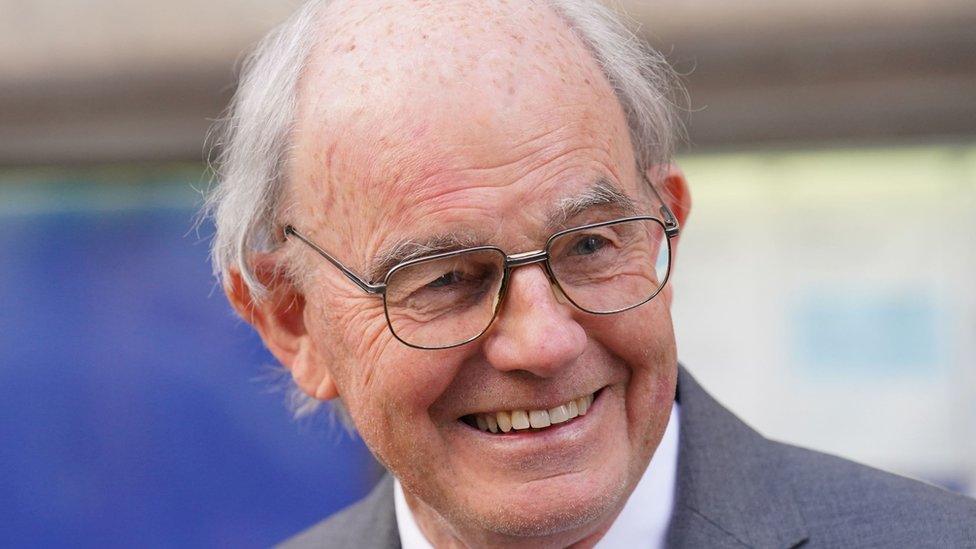
- Published21 March 2019

- Published20 March 2019

- Published19 March 2019

- Published18 March 2019

- Published13 March 2019

- Published8 March 2019

- Published5 April 2019
